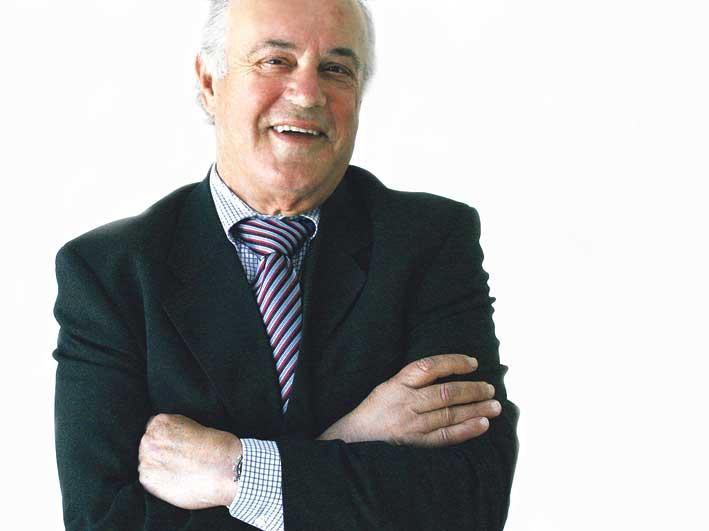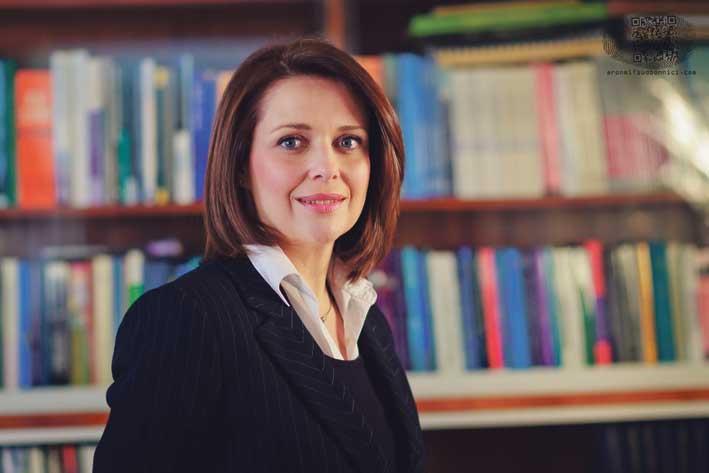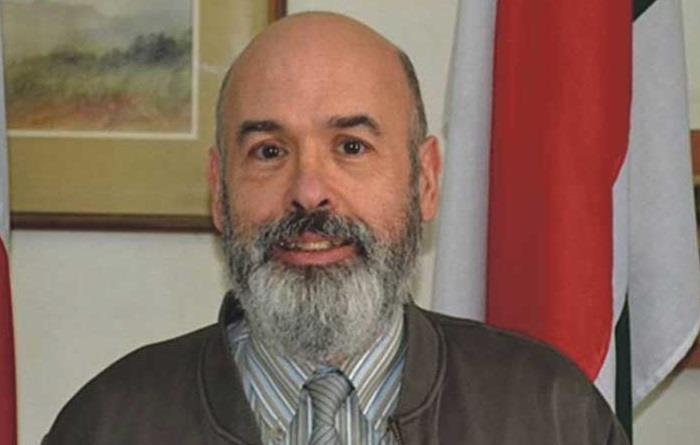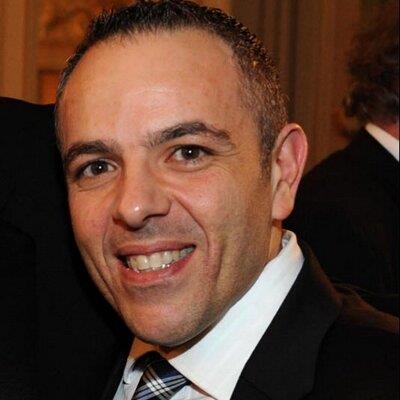Konrad Mizzi and Keith Schembri set up their trusts in New Zealand and companies in Panama while in office. In other words, their source of income is supposed to be only what they earn from in their government roles or from trusts which they had prior to being in office. If not for corrupt purposes, what legitimate reason(s) could these two have had for setting up a company in shady Panama?
Godfrey Grima (pix below): Trusts are not singularly set up to shield illicitly earned funds from scrutiny. There could be myriad reasons for it. We have several trusts in Malta, including one held by the University, and again our tax regime guarantees secrecy - although of course our tax authorities are obliged to co-operate with both EU and international agencies wherever there is suspicion. Panama has cleaned up its act considerably in the last three years. The only accounts which are protected and over which the Panamanian authorities still refuse to co-operate with international agencies are overseas accounts, similar to the one held by Konrad, and possibly – but I’m not sure – by Keith Schembri. One other reason to set up a trust is to secure funds or assets one wishes to shield from possible litigation. I am told there are people facing marriage difficulties in Malta who ask their accountants to set up a trust for them to protect against eventualities - such as a wife or a husband placing such funds and assets under court jurisdiction (these would be legitimately earned funds).

Konrad has made an almighty blunder by going to a doubtful jurisdiction like Panama, but it’s not a crime and this is where the media failed in making this story copper-bottomed. It remains a half-finished story. If there were suspicions of Konrad having expected to receive substantial funds, the media should have waited until that happened and then investigated the provenance of such funds. This is the route an investigation at the Financial Times and other Fleet Street papers would have taken. Media that is objective, having no political agenda and being more interested in credibility would have had proof of corruption before going to print. I have known investigations that took several months before we could pull in all the threads and produce a credible story. The fact he opened a company anywhere in the world while Malta offers equally secure facilities makes him look suspicious and he lets the side down given that Malta’s attractiveness to foreign investors is one of the government’s main planks. But he has committed no crime beyond failing to inform the local tax authorities of his move. There still is no proof of corruption. Just the suspicion, and as you well know, the press is not in the business of selling suspicions. What if we were to find that he was expecting funds to come through from his wife’s side of the family, which I believe is well-off? He still should not have set up his company in Panama, but that is not a crime.
Again, it’s difficult to choose a ‘clean’ jurisdiction these days. Not all are virtuous. Luxemburg has just been caught signing up honey deals with such giants as Google, where they now pay less tax, if any.
The other point is this. It appears that a number of accounting and legal firms provide facilities for Maltese investors in questionable jurisdictions like Panama. Nexia BT is one of them, Fenech and Fenech is another, but there must be others.
These, too, are of interest to the media. How could the country convince foreigners to invest here when there are lawyers and accounting firms selling other jurisdictions and people that form part of the government opening bank accounts in jurisdictions that are less reputable than ours?

Ramona Frendo (photo above): I do not work in the field of financial services and/or trusts and, in my day, we did not even study trusts at University - I suspect that the legislation was introduced after 1995, when I graduated. I do not have a trust, and honestly have never delved into the whys and wherefores of a trust in Malta, much less abroad. Therefore, I am definitely not an expert in the field, and my knowledge of the subject is very much that of the ordinary man in the street – which is pretty basic indeed – and my interest has only been aroused in the past few weeks.
I know that a trust is a financial vehicle, allowed even by Maltese Law, utilised to manage one’s assets. It is also a tool used for estate planning, particularly with regard to inheritance.
As I understand, apart from government income, a minister, as well as a senior civil servant, might have other legitimate income from investments [eg shareholding in companies], or possibly even an inheritance. In the case of a married person, there may, conceptually, also be income or other assets [such as an inheritance] accrued by one’s spouse. One of the vehicles a financial adviser might suggest for asset management purposes could be a trust - but as I have said, I am not an expert in the field.
I do not understand why Panama was chosen as the jurisdiction for the offshore company. In view of all that has transpired, it was definitely an unfortunate choice, because of the secrecy and possible money-laundering connotations – although, once again, I must say that my knowledge of the economic or financial standing of Panama is limited to what I have read in the papers since this matter arose – and the information is contradictory depending on which sources you read. However, from what I gather, Panama is not quite a transparent jurisdiction. Therefore, the choice of Panama would appear to have been ill-advised at best.
Minister Mizzi and Mr Schembri have declared that they acted upon advice given to them by their financial advisers, who, I believe, are much more competent than me to give a reply - they are the ones who were privy to all the pertinent details. I would like to hear these financial advisers, or others who may have trusts set up in Panama, explain what makes Panama attractive or indeed acceptable as a jurisdiction.

Desmond Zammit Marmara' (photo above): Dr Konrad Mizzi used to live abroad, owns property abroad and worked abroad. His spouse is not Maltese as we all know. He set up this trust in New Zealand, a democratic country with strict financial regulations, for family estate planning. Mr Keith Schembri is a successful businessman and holds assets. I think the problem would have been if Dr Mizzi hadn’t declared this trust, but he did. The irony is to have Dr Ann Fenech criticising about Panamanian companies, and then for this to be followed by the revelation that her company owns two companies in Panama without declaring them. Konrad Mizzi is subjecting himself to a tax audit and has already pledged to close down the company in Panama. Keith Schembri will undergo an independent tax audit as well. The difference? Beppe Fenech Adami doesn’t want to undergo the same procedure. Is he afraid of it? Does he have something to hide?

Do you believe the PM when he says that he didn’t know that Keith Schembri (photo above) set up a trust in NZ and a company in Panama?
Grima: I believe the Prime Minister when he claims he knew nothing about this. It’s not only the Prime Minister but other state watchdogs, including MFSA, who apparently failed to get wind of what was happening, despite their access to information from EU and international agencies who keep a sharp eye on the movement of monies and the migration by investors to shady jurisdictions. They, too, in my view let the side down.
Frendo: I am not privy to the relationship between the PM and his chief of staff. Only the PM can state what he knew and what he did not know. However, speaking from personal experience, I do not know what financial vehicles, if any, my closest collaborators have, and I guess that most people would be in the same position of ignorance regarding the investments of even their closest friends.
Zammit Marmara`: Yes, I have no reason not to believe the Prime Minister in what he says.

What should the PM do now? Nothing and hope that people will forget?
Frendo: I doubt that the people will forget - or be allowed to forget. This incident has caused a feeling of unease among many, which the Prime Minister would, politically, ignore at his own risk.
Since there is no proof of illegal funds having been invested in the trust and/or company involved, I believe the Prime Minister has a certain leeway of action, at least from a legal point of view. From a political perspective – and particularly in the interests of good governance – that freedom of action is more restricted.
The Prime Minister’s actual decision as to the steps to be taken in respect of his Minister and his chief of staff depends, I believe, on his perception of their value to his Government. That, once again, is a decision that only the Prime Minister can take, since he is the only one who is fully privy to what the human resources available to him are.
The fact that, to date, there is no proof of any illegal funds having been transferred to the trusts in question might, legally-speaking, allow him to keep Dr Mizzi and Mr Schembri in office, despite the political turbulence of the current situation.
However, one would expect the Prime Minister to ensure the quick enactment of very clear and stringent guidelines, with a revamped Code of Ethics, in order to ensure the avoidance of similar situations for all PEPs in future – and also to ensure transparency and good governance – to a level which is morally convincing to the general public. The idea of some form of authority or commissioner that is independent of all political parties, and ideally enjoying the confidence and support of all, is particularly appealing.
Zammit Marmara`: This Prime Minister has already brought about change. He acted. He enacted laws to keep politicians on their toes and accountable till their death. The difference between this Prime Minister and the Leader of the Opposition is crystal clear. Dr Joseph Muscat fights wrongdoings. Dr Simon Busuttil doesn’t do anything when faced with corruption cases like that of the work-for-votes scandal in Gozo. On that occasion, Dr Busuttil didn’t report anything to the authorities, but instead said to the whistleblower that he shouldn’t have continued with the works as he knew that the election would be lost.

Should Konrad Mizzi and Keith Schembri resign?
Grima: It’s the Prime Minister’s prerogative to deal with his staff and his ministers. We shall have to wait and see. Again, Konrad Mizzi and Keith Schembri have their own moral compass to deal with. It’s up to them to decide to what extent they accept to have erred. It is then for us voters to judge whether they have carelessly let us all down or not. I can tell you this, though: those most irked by this episode are hard-core Labour voters who expect those running this Labour administration to show more sensitivity and greater wisdom in dealing with their own personal wealth.
Frendo: If there results any proof of illegal funds being deposited, then the reply would be a most definite and resounding yes. With the situation as it appears so far, I guess they may live to see another political day.
Zammit Marmara`: No.
* This newspaper also solicited the opinions of media Carmen Sammut for this article, but she chose to not participate